Litvinenko report: David Cameron condemns Russia over ex-spy
- Published
David Cameron said the murder of Alexander Litvinenko had been shown to be "state-sponsored"
David Cameron says the UK is to take tougher action against Russia following the Alexander Litvinenko inquiry.
The ex-spy was poisoned with polonium-210 while in London in 2006, "probably" on the approval of Russian President Vladimir Putin, a report found.
Mr Cameron called the murder "absolutely appalling" and said the inquiry "confirms what we always believed".
However, Russia labelled the UK's public inquiry "theatre of the absurd".
The prime minister's official spokeswoman had earlier said that Downing Street was taking the findings "extremely seriously".
"The conclusion that the murder was authorised at the highest levels of the Russian state is extremely disturbing," she said.
"It is not the way for any state, let alone a permanent member of the UN Security Council, to behave. Regrettably, these findings confirm what we and previous governments already believed."
The report - which comes after a public inquiry chaired by former judge Sir Robert Owen - concluded that Mr Litvinenko was killed by two Russian agents, Andrei Lugovoi and Dmitry Kovtun.
Litvinenko inquiry reaction: Latest updates
Key findings of the public inquiry
Who are the Litvinenko murder suspects?
There was a "strong probability" they were acting on behalf of the Russian FSB secret service, probably with the approval of President Putin, it added.
Both Mr Lugovoi and Mr Kovtun deny the allegations.
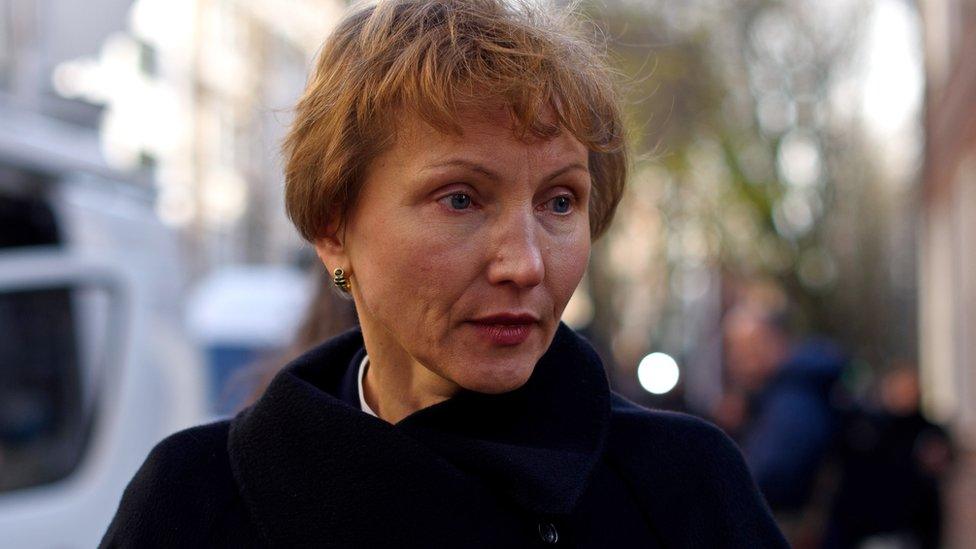
Marina Litvinenko called for further sanction on Russia
Mr Litvinenko's widow Marina said there was "a high degree of probability" the FSB ordered Mr Lugovoi and Mr Kovtun to murder her husband.
She said: "I'm, of course, very pleased that the words my husband spoke on his deathbed, when he accused Mr Putin of his murder, have been proved true in an English court with the high standards of independency and fairness."
She said it was now "time for David Cameron" to act, and called for the immediate expulsion of all Russian intelligence operatives from the UK.
Her barrister, Ben Emmerson QC, told a news conference the killing had amounted to "nuclear terrorism" and called on Mr Cameron to increase sanctions on Russia.
"It would be craven for the government, for the prime minister, to do nothing in response. It would be an abdication of his responsibilities to do what is, after all, the first function of a state, which is to keep its people safe," he said.
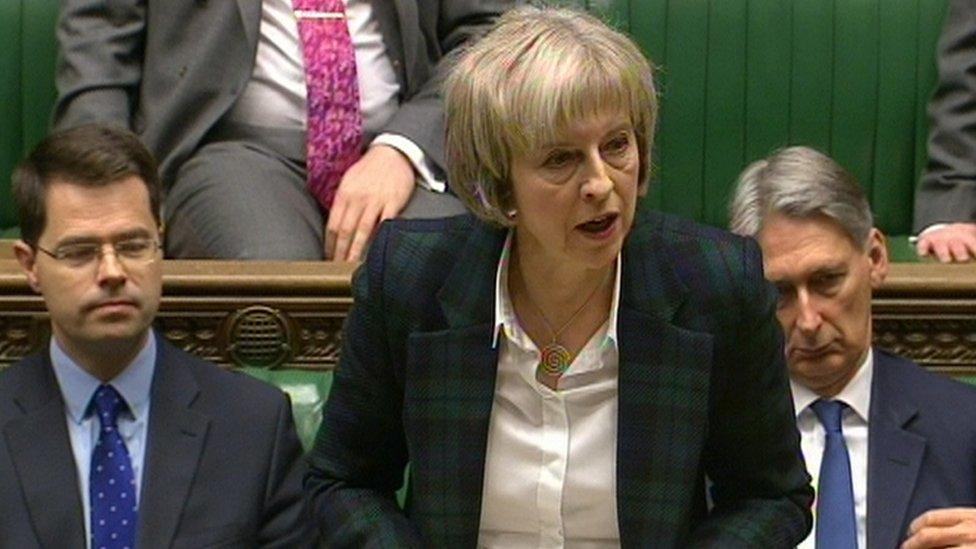
Home Secretary Theresa May addressed MPs in Parliament
Addressing the House of Commons, the home secretary said the Russian ambassador had been summoned to the Foreign Office and the assets of the two main suspects were being frozen.
Mrs May said: "This was a blatant and unacceptable breach of the most fundamental tenets of international law and civilised behaviour.
"But we have to accept that this doesn't come as a surprise."
'State-sanctioned terrorism'
Shadow home secretary Andy Burnham said he could not remember "a more disturbing report" to ever come before Parliament.
"This was an act of state-sanctioned terrorism, an attack on London, sanctioned at the very highest levels of the Russian government and putting Londoners at risk, thousands of Londoners at risk," he said.
He said the government's response did not "go anywhere near enough in answering the seriousness of the findings"
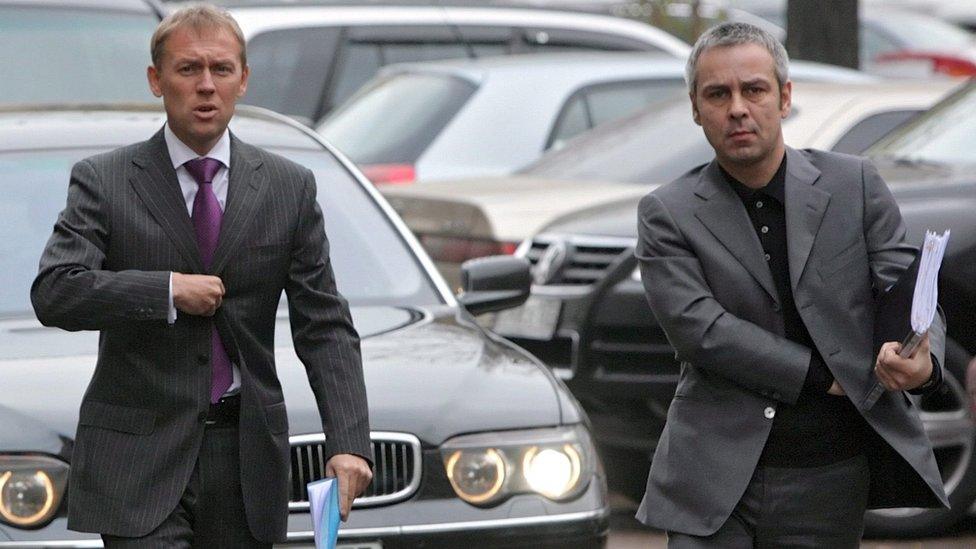
Andrei Lugovoi, left, and Dmitry Kovtun deny the allegations
Conservative backbencher David Davis said the report was "astonishing" and called for the government to step up its response to Moscow.
"What we have done so far is gesture. I think we need to expel the intelligence officers from the Russian embassy here," the former shadow home secretary told BBC Radio 4's World At One.
"You eventually get to the point with a dictator where you have to draw a line. It's a lesson we learned in the 1930s with Hitler.
"If you keep backing off time after time after time then eventually they do something completely intolerable - and this is intolerable."
Shadow Commons leader Chris Bryant said he understood why the government wanted to engage with Russia over Iran and Syria.
But he added: "The one thing we know for certain about the murderous kleptomaniac regime in Russia is that it walks all over the weak."
'Slander Russia'
However, the inquiry has been condemned inside Russia as a political "whitewash" engineered to "slander" the country.
Russian foreign ministry spokeswoman Maria Zhakarova told reporters: "There was one goal from the beginning: slander Russia and slander its officials."
She added: "We regret that a purely criminal case has been politicised and has darkened the general atmosphere of our bilateral relations."
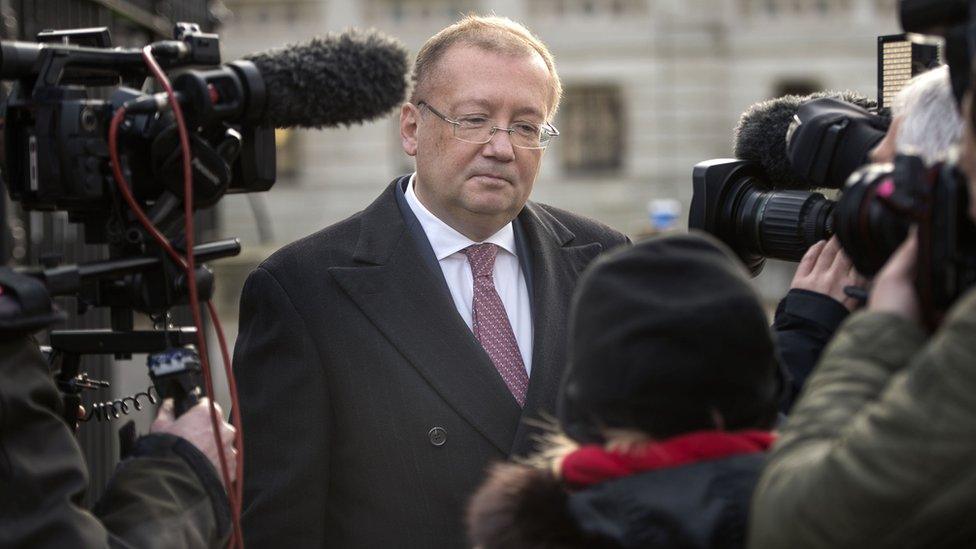
Alexander Yakovenko, Russian ambassador to the UK, dismissed the report
Russian ambassador to the UK, Alexander Yakovenko - speaking after he had been summoned for talks with minister David Lidington at the Foreign Office - said the inquiry was a "blatant provocation of the British authorities".
"We will never accept anything arrived at in secret and based on the evidence not tested in an open court of law," he said.
Responding to the report, Mr Lugovoi, who is now a politician in Russia, said the accusations against him were "absurd".
"As we expected, there were no surprises," he added.
"The results of the investigation made public today yet again confirm London's anti-Russian position, its blinkeredness and the unwillingness of the English to establish the true reason of Litvinenko's death," he said.
Mr Kovtun, now a businessman in Russia, said he would not comment on the report until he got more information about its contents, Interfax reported.
- Published21 January 2016
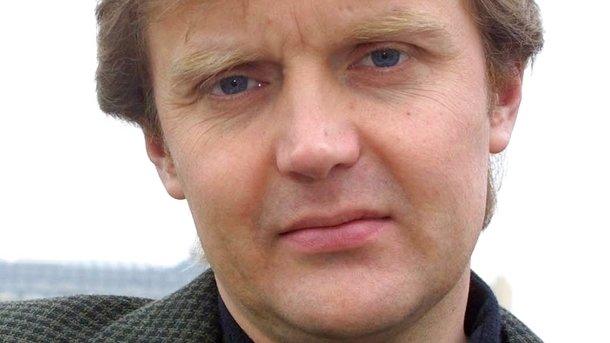
- Published21 January 2016
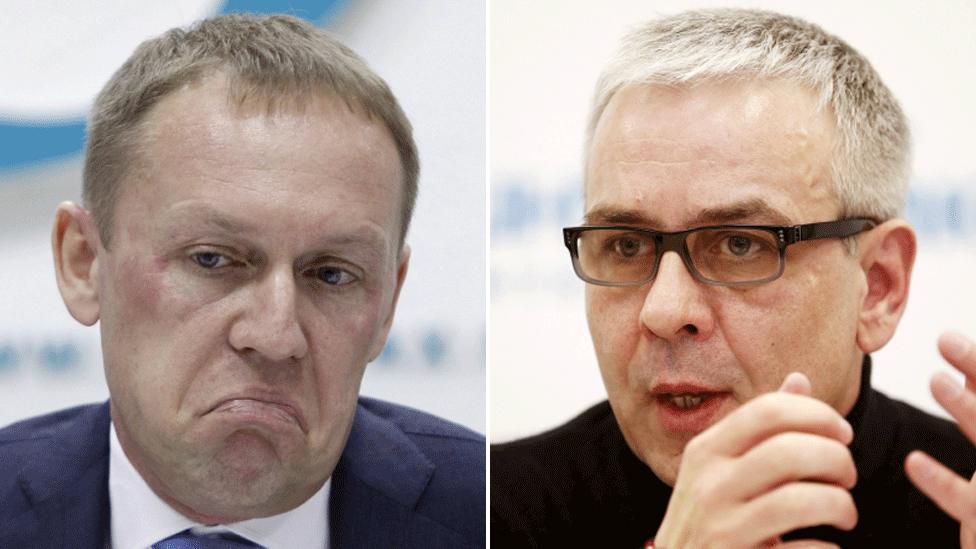
- Published21 January 2016
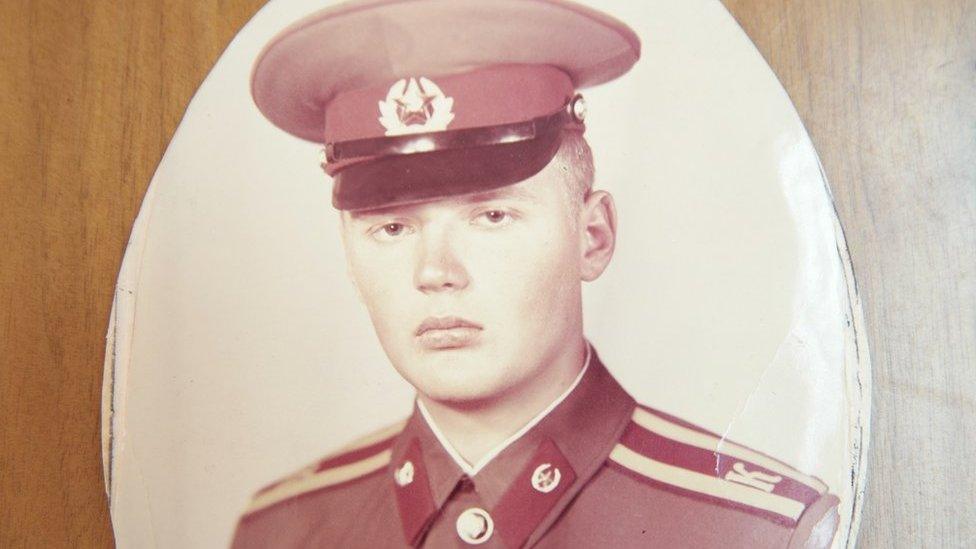
- Published21 January 2016
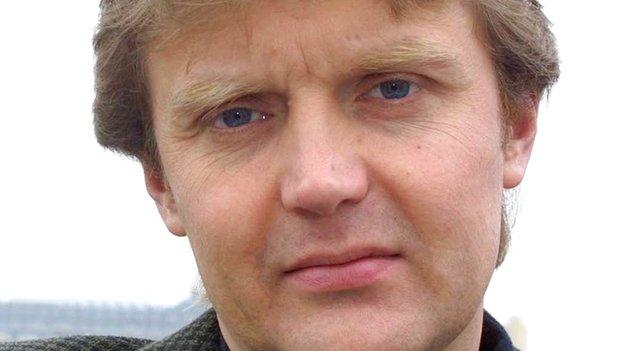
- Published21 January 2016
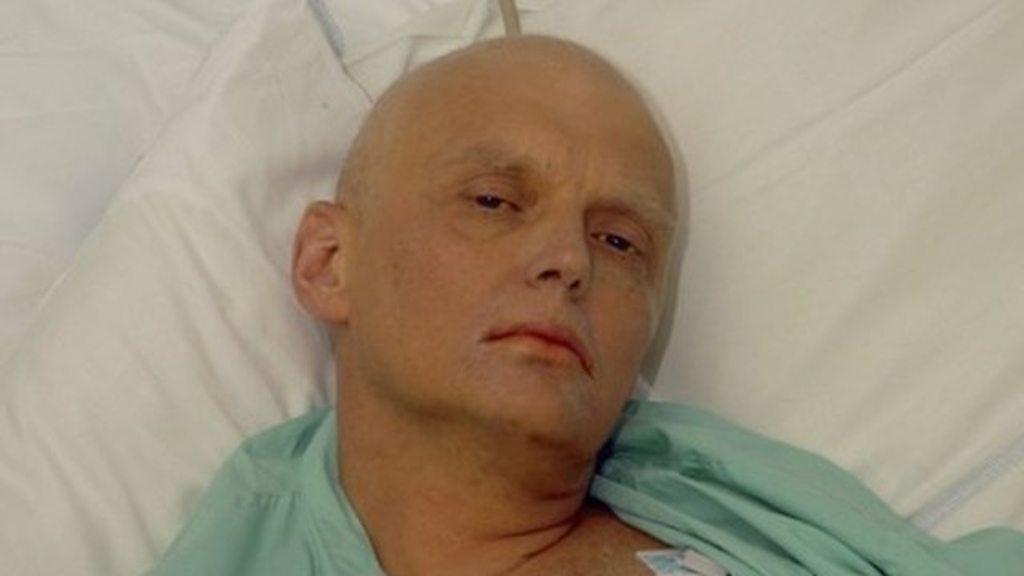
- Published31 July 2015
